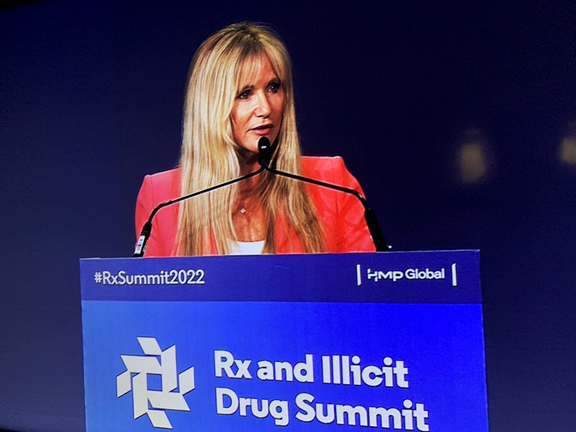Updates from the NGA Membership Team for May 2022. For more about the programs below and a list of upcoming events please email us at: membership@nga.org.
Government Relations
Public Health Emergency Update
Last week, Secretary of Health and Human Services (HHS) Xavier Becerra and Centers for Medicare and Medicaid Services (CMS) Administrator Chiquita Brooks-LaSure sent a letter to Governors reaffirming their commitment to providing states and territories with 60-days notice before any expiration or termination of the public health emergency (PHE). The letter also mentions the work that HHS has done with states’ Medicaid and Children’s Health Insurance Program (CHIP) agencies to prepare for the return to normal operations. In addition, the letter highlights the March guidance, planning and communications tools to assist states and territories when restoring routine eligibility and enrollment operations after the PHE ends. Also, in April, CMS released a proposed rule that would smooth transitions between Medicaid and Medicare during the unwinding period.
The PHE is currently set to expire on July 15, 2022; however, the Administration had until May 15, 2022, to notify states and territories because a commitment was made to provide notification 60-days before terminating the PHE. NGA believes the PHE will be extended beyond July 15.
Governors Respond to President Biden’s Letter About Cybersecurity
Council of Governors co-chairs Minnesota Governor Tim Walz and Ohio Governor Mike DeWine sent a letter to President Biden in response to a March 18 letter President Biden sent regarding the heightened cybersecurity threat stemming from Russia’s ongoing attack on Ukraine.
In the letter, the Governors write: “We share your concern on the importance of cyber resilience as a national priority, and we assure you that our fellow Governors remain committed to safeguarding the networks, systems, and operational technology on which our Nation and economy rely. Guarding critical infrastructure operations within our borders is not a new obligation, and we understand the importance of collaborating with our states’ service providers in this elevated threat environment.”
The Governors’ letter highlights the steps the Council of Governors and individual states have been taking to implement robust cybersecurity strategies in preparation for a major incident. The letter also asks for more collaboration between states and federal partners and asks for more resources to be provided to states.
NGA Urges Congress to Pass WRDA
On May 4, the U.S. Senate Environment and Public Works Committee unanimously advanced the Water Resources Development Act of 2022 (WRDA). The bill would authorize U.S. Army Corps of Engineers projects and programs, and for the first time since 2007, authorizes new environmental infrastructure projects. At the same time, the House Transportation and Infrastructure Committee is reportedly making progress on its draft of WRDA 2022 following an array of hearings the Committee held earlier this spring.
Prior to the Senate markup, NGA joined the National Conference of State Legislatures, the National Association of Counties, the National League of Cities and the United States Conference of Mayors in sending a WRDA 2022 priorities letter to the chairs and ranking members of the U.S. Senate Committee on Environment and Public Works and the U.S. House Committee on Transportation and Infrastructure. The letter urges Congress to pass the new bipartisan WRDA legislation and to continue to maintain a two-year authorization schedule moving forward.
Governors Request Release of Remaining Coronavirus State and Local Fiscal Recovery Funds
NGA Chairman Arkansas Governor Asa Hutchinson and Vice Chairman New Jersey Governor Phil Murphy sent a letter to Secretary Janet Yellen requesting that the U.S. Department of Treasury immediately distribute the remaining tranche of Coronavirus State and Local Fiscal Recovery Funds that were included in the American Rescue Plan Act and clarify that all eligible governments in receipt of past funding have qualified for obligation. State, territory and local governments have been engaged in the COVID-19 response since the earliest days, and providing full distribution of these financial resources, along with regulatory clarity, is the surest way to see that our nation’s preparedness and responsivity continues.
Governors Commend U.S. Senate for Funding COVID Vaccines, Therapeutics and Supplies
NGA Chairman Arkansas Governor Asa Hutchinson and Vice Chairman New Jersey Governor Phil Murphy released a statement commending the U.S. Senate for their work on a bipartisan agreement that will provide $10 billion to develop and procure vaccines, therapeutics and other supplies to ensure states have the tools necessary to continue to respond to the pandemic, without pulling from State and Local Fiscal Recovery Funds, which states have already factored into their Fiscal Year 2023 budget plans. The letter urges Congress to pass a bipartisan package that will give states the tools and flexibility they need to continue to fight COVID-19 and support economic recovery.
NGA Activities
States Collaborate to Combat Health Worker Shortage
California, Colorado, Missouri and Wyoming are among 14 states participating in the Next Generation of the Healthcare Workforce Learning Collaborative, a new effort launched by NGA’s Center for Best Practices.
During the six-month project, Governors’ offices and other senior state officials across health, education and workforce development agencies will join forces to develop innovative and evidence-based policies, programs and practices to strengthen an enduring health care workforce. An additional ten states – Alabama, Connecticut, North Carolina, Ohio, Oregon, Rhode Island, South Carolina, Utah, Wisconsin and West Virginia – are members of a broader Next Gen Knowledge Exchange Network, which will have access to Learning Collaborative resources and discussions.
Nearly 20% of the health care workforce have left positions since the beginning of the pandemic, with an additional 20% contemplating leaving positions as of February 2020.
Governors are advancing multiple strategies to address the compounding effects of these losses, diminished morale among health care workers and looming generational retirements. This includes creating new career pathways and training programs for key occupations such as certified nursing assistants, raising wages for direct care workers and establishing workgroups to devise comprehensive, statewide strategies for addressing current and future career flight.
The Learning Collaborative will publish findings and recommendations later this year.
NGA Resource Helps States Close Digital Skills Gaps
According to research by the National Skills Coalition, nearly one in three U.S. workers ages 16-64 have few or no digital skills, and at least 38% of those workers are employed in jobs that require moderate or advanced computer usage. To assist states in closing digital skill gaps, NGA released a brief detailing key questions and resources for state leaders to consider when looking ensure all workers gain the skills needed to participate in work and life.
The brief is also designed to help states navigate the Digital Equity Act (DEA), a provision within the Infrastructure Investment and Jobs Act (IIJA). The DEA is a historic federal investment to promote digital literacy. The State Digital Equity Capacity Grant Program will award nearly $1.5 billion in federal funds to states to support the development and implementation of plans to promote digital skill development. Governors have authority to select the entity that administers these plans and may select one of many eligible entities to implement the host of new grant programs that, together, can help states close the digital divide.
The brief is a product of the NGA Workforce Innovation Network, an initiative of the NGA Workforce Development and Economic Policy Program. As Governors lead efforts to promote forward-looking economic recovery in their states and territories, the Workforce Innovation Network helps facilitate innovative state-level policy solutions that improve employment and workforce outcomes.
NGA Issues Roadmap on How to Prevent Ideologically Inspired Violence
NGA has released a roadmap to provide guidance to Governors, state and local leaders and other stakeholders on how to prevent ideologically inspired violence – whether political, gender-based or religious. The roadmap recognizes governors can play an important role setting a vision for their states, engaging stakeholders and developing a statewide strategic plan. As such, the roadmap is designed to help state leaders take a multidisciplinary, collaborative approach to preventing violence so states can build safer and more resilient communities.
The roadmap comes from a two-year grant the National Governors Association Center for Best Practices (NGA Center) received from the U.S. Department of Homeland Security (DHS) to help states develop and implement strategies that prevent all forms of targeted violence.
A Day in History
May 15, 2008: The U.S. Senate issued a Resolution commemorating the 100th anniversary of the founding of NGA. The Resolution notes that NGA was founded in 1908 after Governors met with President Theodore Roosevelt to discuss conservation issues. This meeting prompted Governors to form an association through which they could come together to discuss mutual concerns and act collectively. NGA observes its 114th birthday this May.

Spouses Program
North Dakota First Lady Kathryn Burgum delivered a plenary address during the 2022 Rx and Illicit Drug Summit held in Atlanta. During her remarks, Mrs. Burgum shared her personal journey from addiction to long-term recovery and highlighted the work taking place in North Dakota to eliminate the shame and stigma of the chronic disease of addiction, including through Recovery Reinvented, an annual daylong event focused on reinventing recovery through eliminating the stigma of addiction.
“This Summit is an incredible opportunity to share the innovative work North Dakota is leading around ending the stigma of addiction,” Mrs. Burgum said. “We believe our statewide movement is a blueprint for how other states and communities can empower supportive cultures for recovery.”
Established in 2012 under the leadership of Operation UNITE and U.S. Rep. Harold “Hal” Rogers of Kentucky, the Rx and Illicit Drug Summit is the largest national collaboration of professionals from local, state and federal agencies, business, academia, treatment providers and allied communities impacted by prescription drug abuse and heroin use.
NGA policy staff members also presented at the Rx and Illicit Drug Summit to help highlight how Governors have been on the forefront of efforts to prevent and treat opioid use disorder and substance use disorder. More information about this work can be found through NGA’s Substance Use Disorder and Addiction resources.













